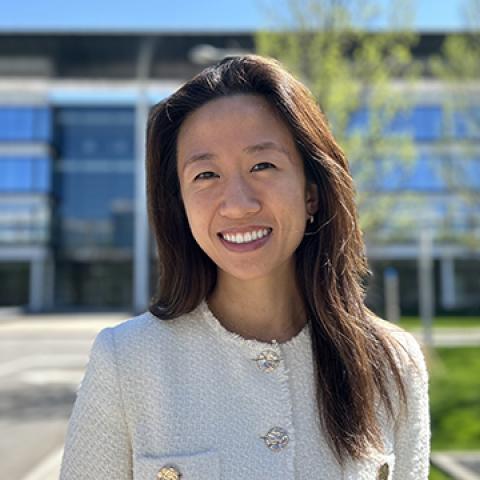For Tiffany Vaughan, there are many pathways for healing hearts.
The rising fourth-year Case Western Reserve University School of Medicine student, who plans to specialize in cardiology, has the opportunity to bring contemporary meaning to the atrocities of Nazi Germany. Through a Fellowship at Auschwitz for the Study of Professional Ethics (FASPE), Vaughan will examine the motivations and conduct of that era's physicians in enabling and executing Nazi policies.
“As modern medical professionals, we often forget that much of our practice has been shaped in response to actions and war crimes carried out by Nazi-era Germany,” said Vaughan. “FASPE is an opportunity to deepen my understanding of that, as well as use this historical framework to guide ethical decision-making in the medical profession today."
Vaughan will spend two weeks in Berlin and Poland this summer, taking part in daily seminars, small group discussions and site visits to Auschwitz-Birkenau, a former German Nazi concentration and extermination camp, and Charité, a hospital found complicit in Nazi brutality. Fellows from the business, seminary, design and technology, journalism, law and medicine sectors will also share the journey.
Vaughan hopes this fellowship will help her glean valuable insights into modern-day ethical problems—notably end-of-life decision-making—like she’s already experiencing during her medical education at CWRU.
“We had a terminal cancer patient ask for an increase in her pain medications. However, her 18-year-old daughter who was in charge of making her healthcare decisions grappled with an agonizing choice. She worried that escalating her mom's pain medications would sedate her further and inadvertently rob them of their last moments together," said Vaughan of a clinical experience. “From an ethical standpoint, I learned so much from that interaction by watching a young adult make those important decisions for her mom.”
Vaughan’s interest in ethics began at the University of Chicago, where she studied the history and philosophy of medicine. Case Western Reserve’s strong emphasis on research and the School of Medicine’s student-driven, self-inquiry curriculum drew the Rockford, Illinois, native to Ohio.
But, she realized when interviewing here, there was something else drawing her in.
“I thought, these are the kind of people I want to surround myself with for the next four years,” said Vaughan of fellow applicants, students and the admissions committee she met during her CWRU interview.
As an avid researcher and active member of intramural sports teams, Vaughan says it’s an art balancing the demands of medical school and outside interests. She explores Cleveland's food scene with friends, teaches tennis to young kids in the community and follows her heart regarding her career.
“Sometimes in the fast-paced environment of medicine you lose perspective of the big picture,” said Vaughan. “We are part of a very special profession and have opportunities to be there for people in a capacity that not everyone gets to do. I will always be grateful for that.”


